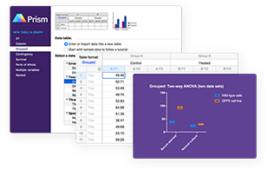Researchers
from North Carolina State University have developed two new techniques
to help maximize the performance of multi-core computer chips by
allowing them to retrieve data more efficiently, which boosts chip
performance by 10 to 40 percent.
To
do this, the new techniques allow multi-core chips to deal with two
things more efficiently: allocating bandwidth and “prefetching” data.
Multi-core
chips are supposed to make our computers run faster. Each core on a
chip is its own central processing unit, or computer brain. However,
there are things that can slow these cores. For example, each core needs
to retrieve data from memory that is not stored on its chip. There is a
limited pathway – or bandwidth – these cores can use to retrieve that
off-chip data. As chips have incorporated more and more cores, the
bandwidth has become increasingly congested – slowing down system
performance.
One
of the ways to expedite core performance is called prefetching. Each
chip has its own small memory component, called a cache. In prefetching,
the cache predicts what data a core will need in the future and
retrieves that data from off-chip memory before the core needs it.
Ideally, this improves the core’s performance. But, if the cache’s
prediction is inaccurate, it unnecessarily clogs the bandwidth while
retrieving the wrong data. This actually slows the chip’s overall
performance.
“The
first technique relies on criteria we developed to determine how much
bandwidth should be allotted to each core on a chip,” says Dr. Yan
Solihin, associate professor of electrical and computer engineering at
NC State and co-author of a paper describing the research.
Some
cores require more off-chip data than others. The researchers use
easily-collected data from the hardware counters on each chip to
determine which cores need more bandwidth. “By better distributing the
bandwidth to the appropriate cores, the criteria are able to maximize
system performance,” Solihin says.
“The
second technique relies on a set of criteria we developed for
determining when prefetching will boost performance and should be
utilized,” Solihin says, “as well as when prefetching would slow things
down and should be avoided.”
These
criteria also use data from each chip’s hardware counters. The
prefetching criteria would allow manufacturers to make multi-core chips
that operate more efficiently, because each of the individual cores
would automatically turn prefetching on or off as needed.
Utilizing
both sets of criteria, the researchers were able to boost multi-core
chip performance by 40%, compared to multi-core chips that do not
prefetch data, and by 10% over multi-core chips that always prefetch
data.
The
paper, “Studying the Impact of Hardware Prefetching and Bandwidth
Partitioning in Chip-Multiprocessors,” will be presented June 9 at the
International Conference on Measurement and Modeling of Computer Systems
(SIGMETRICS) in San Jose, Calif. The paper was co-authored by Dr. Fang
Liu, a former Ph.D. student at NC State. The research was supported, in
part, by the National Science Foundation.
NC State’s Department of Electrical and Computer Engineering is part of the university’s College of Engineering.
Citation:
“Studying the Impact of Hardware Prefetching and Bandwidth Partitioning in Chip-Multiprocessors”
Authors: Fang Liu and Yan Solihin, North Carolina State University
Presentation: June 9, 2011, at the International Conference on Measurement and Modeling of Computer Systems, San Jose, Calif.




